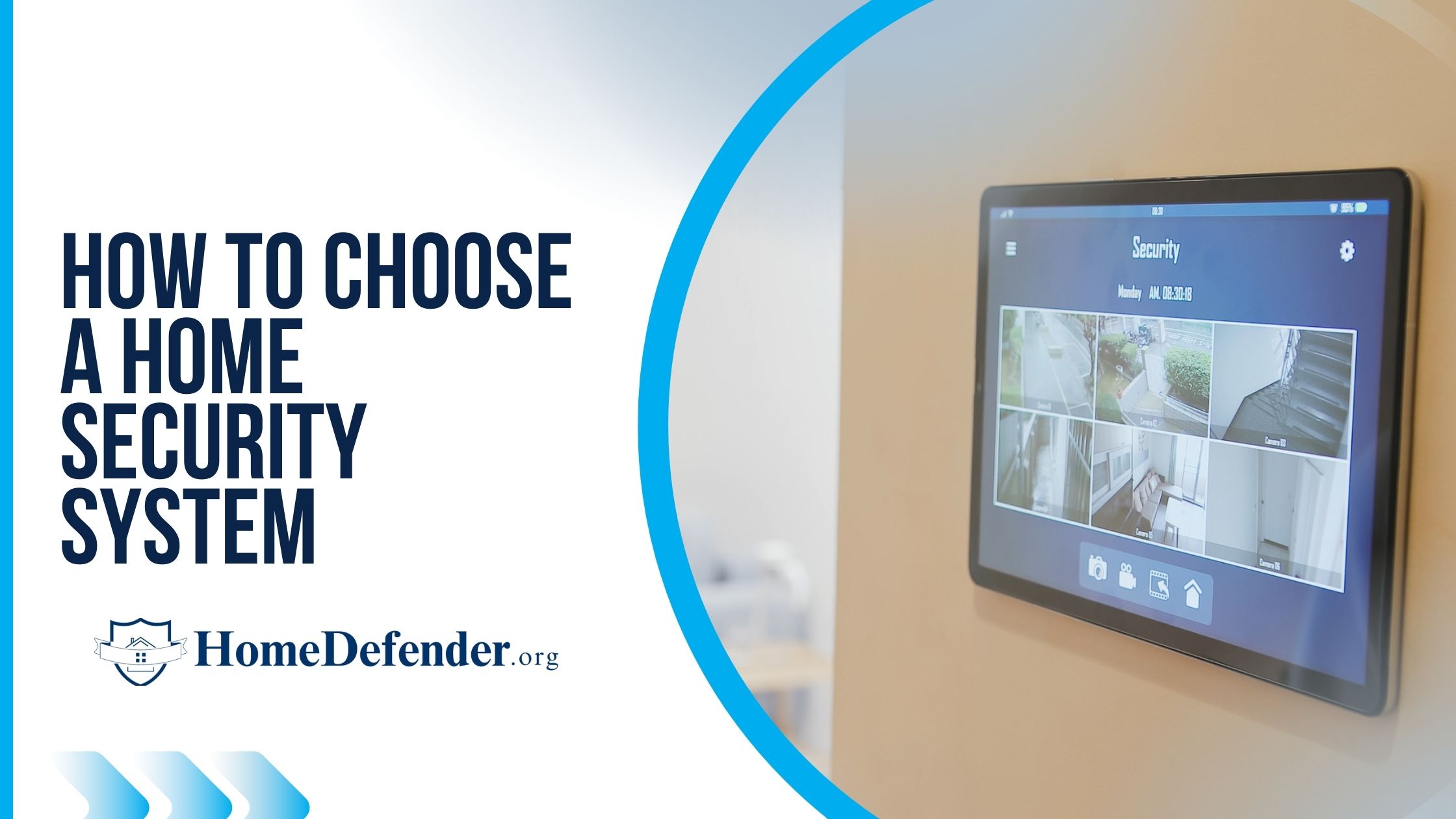Is your home truly safe? How to choose a home security system is crucial to protect your family, valuables, and property. With so many options available, it might feel overwhelming to find the perfect fit for your specific needs. This comprehensive guide will walk you through everything you need to know to make an informed decision and secure your sanctuary.
Key Takeaways
Understand your home security needs, layout and access points, family members & valuables, neighborhood crime rates.
Compare professional vs DIY installation options for ease of use and cost/maintenance considerations.
Look for advanced security cameras, smart home integration & environmental sensors. Evaluate monitoring services based on response time and budget considerations when selecting a provider.
Understanding Your Home Security Needs
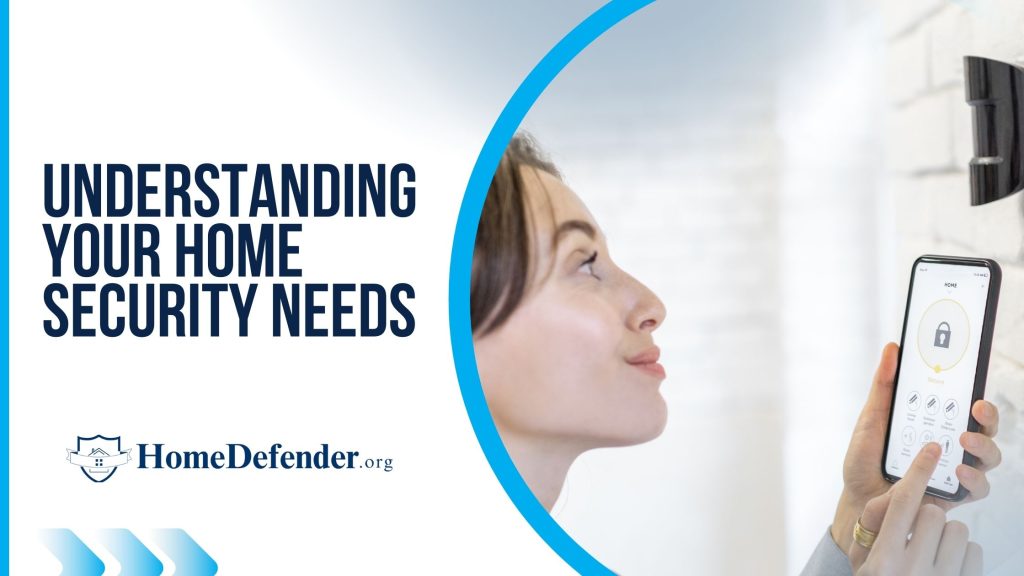
A one-size-fits-all approach doesn’t work when it comes to home security. Every home is unique, and so are the security requirements. The best home security system for your situation will depend on:
The layout of your home
The family members who live there
The valuables you possess
The crime rates in your neighborhood.
Let’s further investigate these factors.
Home Layout and Access Points
Your home’s layout plays a vital role in determining the necessary sensors and cameras for comprehensive coverage. A thorough examination of your home’s layout allows for the identification of vulnerable entry points like doors and windows – the ideal spots for sensor and camera installation. Some examples of sensors and cameras that can be installed include:
Door sensors
Window sensors
Motion sensors
Glass break sensors
Security cameras
Glass break sensors, for instance, provide an added layer of security by detecting the sound of breaking glass.
Beyond securing entry points, the strategic placement of outdoor cameras, motion sensors, and lights is also crucial. These devices help deter potential threats and ensure that every corner of your property is well-protected. Be sure to research the most effective door and window sensors for a professionally installed system to maximize your home’s security.
Family Members and Valuables
Your family and valuables deserve the best protection. When selecting a home security system, consider the needs of your family members, pets, and valuable possessions. For example, a nanny camera can be used to monitor:
nurseries
children’s bedrooms
caretakers
elderly parents
pets
Home automation controls can also play a significant role in safeguarding your loved ones and belongings. By incorporating smart locks, thermostats, and lighting controls, you can enjoy convenience, security, and energy efficiency. This integration allows you to:
Manage your home’s security and comfort from a distance
Control access to your home with smart locks
Adjust the temperature and save energy with smart thermostats
Control and schedule your lighting for added security and convenience
This gives you greater peace of mind knowing that you have control over your home even when you’re not there.
Neighborhood and Crime Rates
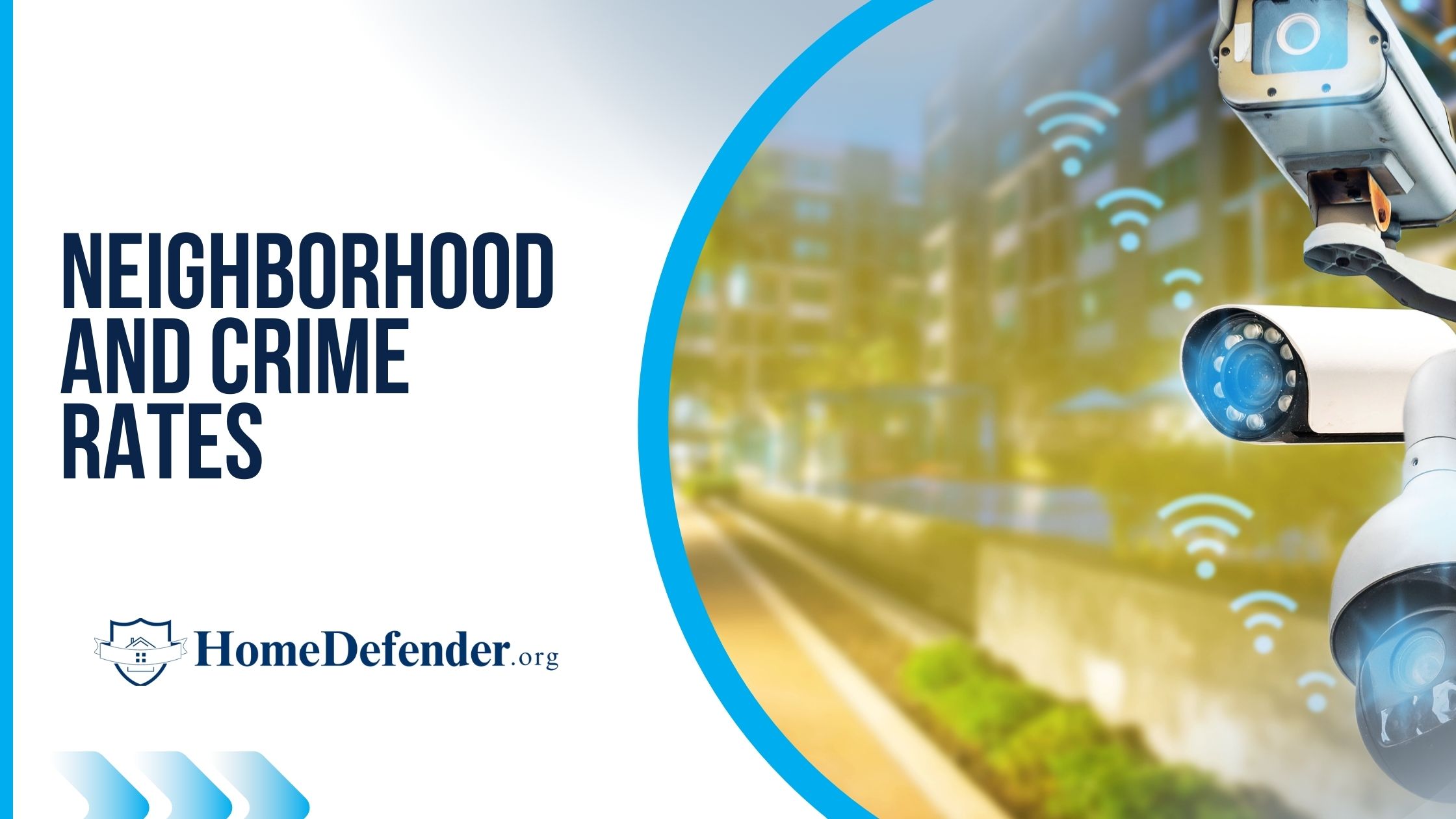
A clear grasp of your neighborhood’s crime rates is vital in deciding what level of security your home needs. To access crime data, you may use:
The Crime Data Explorer on the USA.gov website
Interactive crime maps on ADT’s website
Tools like SpotCrime and CityProtect, which provide crime data at the neighborhood level.
A detailed analysis of neighborhood-level crime data provides a clearer picture of the specific risks in your area. This allows you to make an educated decision on the level of security needed for your residence. Don’t underestimate the importance of this step in choosing the right home security system for your unique situation.
Comparing Installation Options: Professional vs. DIY
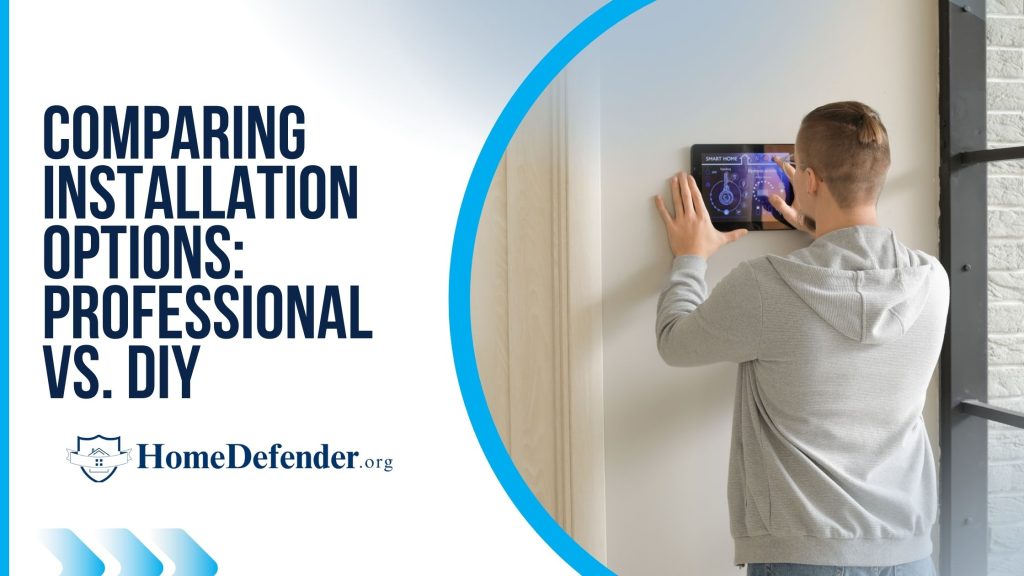
Regarding installation, you have the option of choosing either a professional or a DIY home security system. Each option has its advantages and disadvantages, which we’ll explore in the following sections.
Your decision should be influenced by factors like ease of installation, costs, maintenance, and customization to best suit your needs.
Ease of Installation
Installation ease varies between professional and DIY systems. Professional systems often require more complex installations, specialized tools, and knowledge, which necessitate the assistance of security experts. On the other hand, DIY systems are typically more straightforward, requiring only basic tools and knowledge for installation, making them ideal for individuals with limited technical skills.
When choosing between professional and DIY systems, consider your technical skills and time constraints. Professional installation may require more time and effort, while DIY installations can typically be completed more quickly and with less hassle. Ultimately, the best option for you will depend on your unique situation and preferences.
Costs and Maintenance
When comparing installation options, it’s important to also consider the associated costs and maintenance requirements. Professional installations generally involve higher costs, including equipment, installation fees, and ongoing monitoring services. DIY systems, on the other hand, tend to be more affordable and may not require monthly monitoring fees.
In addition to the initial costs, consider the ongoing maintenance requirements for each option. Professional systems may require regular service visits and equipment updates, while DIY systems may necessitate more hands-on maintenance from the homeowner. Evaluate your budget and desired level of involvement in the system’s upkeep to determine the most suitable option for you.
Flexibility and Customization
Take into account the flexibility and customization options available when comparing professional and DIY systems. Both types of systems typically offer a range of components and features that can be tailored to suit your specific needs. However, DIY systems may offer more flexibility in terms of adding or changing components and settings as your needs evolve.
A careful examination of each system’s customization options will help you find the best home security system for your needs. Whether you prefer the comprehensive protection offered by a professional system or the flexibility and affordability of diy security systems, the choice ultimately depends on your preferences and requirements.
Features to Look for in a Home Security System
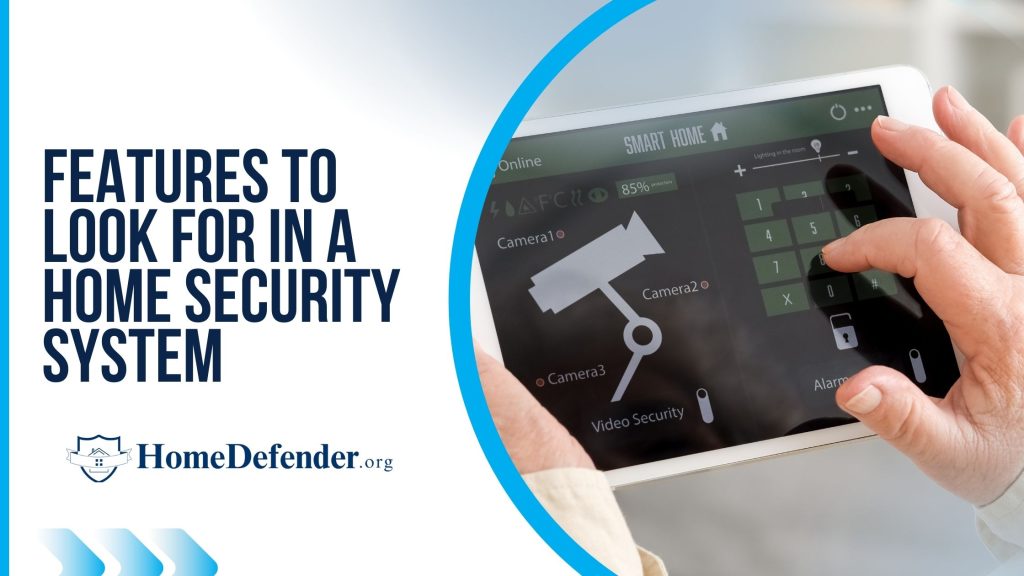
Given the multitude of features available, pinpointing the most important aspects of a home security system that fulfill your specific needs is of utmost importance. In this section, we’ll explore advanced security cameras, smart home integration, and environmental sensors – all of which contribute to a comprehensive security solution for your home.
Advanced Security Cameras
Advanced security cameras offer numerous benefits over traditional security cameras. They provide:
High-quality video
Motion detection capabilities
Remote access for monitoring your home from anywhere
Night vision
Two-way audio
Facial recognition technology
With these features, a smart security system, which includes advanced security cameras, can significantly enhance your home’s security, making a security camera a valuable addition to your safety measures.
While advanced security cameras may come with a higher price tag, their superior performance and dependability make them a worthwhile investment for many homeowners. By carefully considering the features and benefits of advanced cameras, you can find the right surveillance solution to protect your home and loved ones.
Smart Home Integration
Smart home integration is a game-changer when it comes to home security. By seamlessly integrating your security system with other smart home devices, you can manage your entire home’s safety and comfort from a single app. Third-party smart home devices that can be integrated with home security systems include:
Nest thermostat
Kwikset smart lock
Philips Hue smart light
Amazon Alexa
Smart home automation not only provides convenience but also helps save money by customizing controls to fit your routine, such as:
setting the thermostat to automatically adjust each morning when leaving for work
turning off lights and appliances when not in use
adjusting blinds or curtains to optimize natural light
monitoring energy usage and providing insights on how to reduce consumption
By embracing smart home technology, you can enjoy a more efficient and secure living environment.
Environmental Sensors
Environmental sensors are an essential component of a comprehensive home security system. These sensors detect threats such as carbon monoxide, smoke, and flooding, providing an extra layer of protection for your home. Devices like carbon monoxide detectors and smoke alarms can help safeguard lives and alert you to potential dangers both when you’re at home and away.
Incorporating environmental sensors into your home security system broadens the range of threats your home is protected from. This added layer of protection will give you greater peace of mind, knowing that your family and property are safe from harm.
Monitoring Services: Self-Monitoring vs. Professional Monitoring
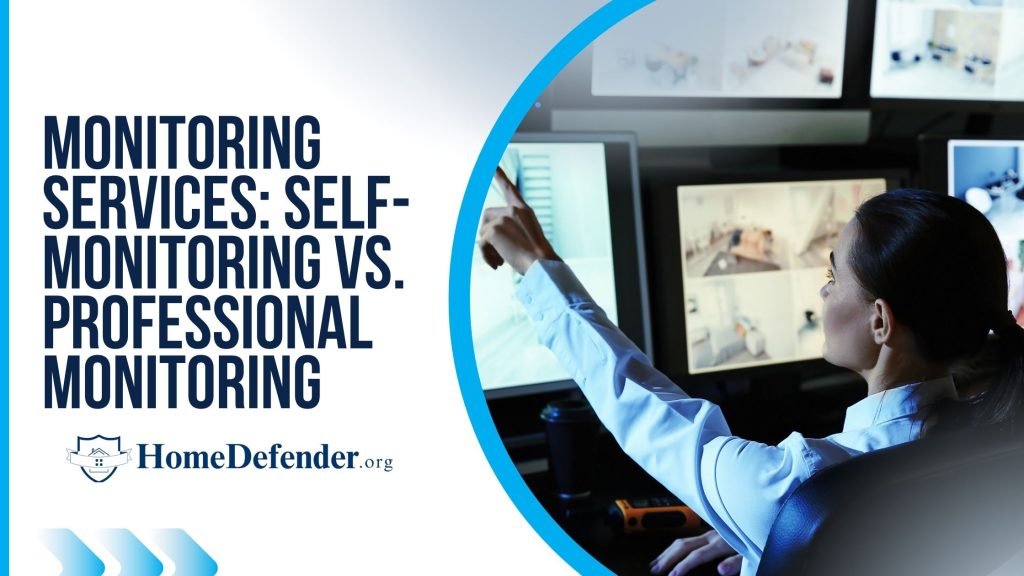
Beyond deciding between professional and DIY installation options, you’ll also need to choose the monitoring service type for your home security system. Monitoring services can either be self-monitored or professionally monitored.
In this section, we’ll compare these two options in terms of response time, monthly costs, and false alarm management.
Response Time
The response time for self-monitoring and professional monitoring services is a critical factor to consider when selecting a home security system. With self-monitoring, the response time depends on the provider and usually takes between a few seconds to a few minutes. However, since you’re responsible for responding to alerts and contacting emergency services, your personal response time might vary.
Professional monitoring services offer:
A much quicker response time, ranging from a few seconds to a few minutes
The ability to assess the situation in the event of an emergency
Contact with emergency services on your behalf
Timely assistance when needed
The decision on which option best matches your needs should be based on an evaluation of each option’s response time.
Monthly Costs
The monthly costs for self-monitoring and professional monitoring services can vary significantly. Professional monitoring typically involves a monthly fee ranging from $10 to $60, depending on the desired scope of monitoring. Self-monitored systems, however, do not incur any monthly fees, making them a more budget-friendly option for some homeowners.
As you compare monthly costs, keep in mind your budget and the level of security you desire. While professional monitoring services may come with a higher price tag, the peace of mind they provide may be worth the investment for many homeowners. Weigh the costs and benefits of each option to determine the best fit for your situation.
False Alarm Management
False alarms can cause unnecessary stress and potential fines from local authorities. Understanding how each monitoring option handles false alarms is essential in choosing the right home security system.
User-error false alarms and environmental false alarms are the two main types of false alarms. To reduce the occurrence of false alarms, you can take the following steps:
Ensure that all users are well-trained on the system’s usage.
Regularly test the system for proper functioning.
Employ environmental sensors to detect any environmental factors that may lead to false alarms.
By following these steps, you can minimize false alarms and improve the overall effectiveness of your alarm system.
Considering each monitoring option’s approach to managing false alarms can help reduce the likelihood of unnecessary stress and potential fines.
Evaluating Home Security Providers
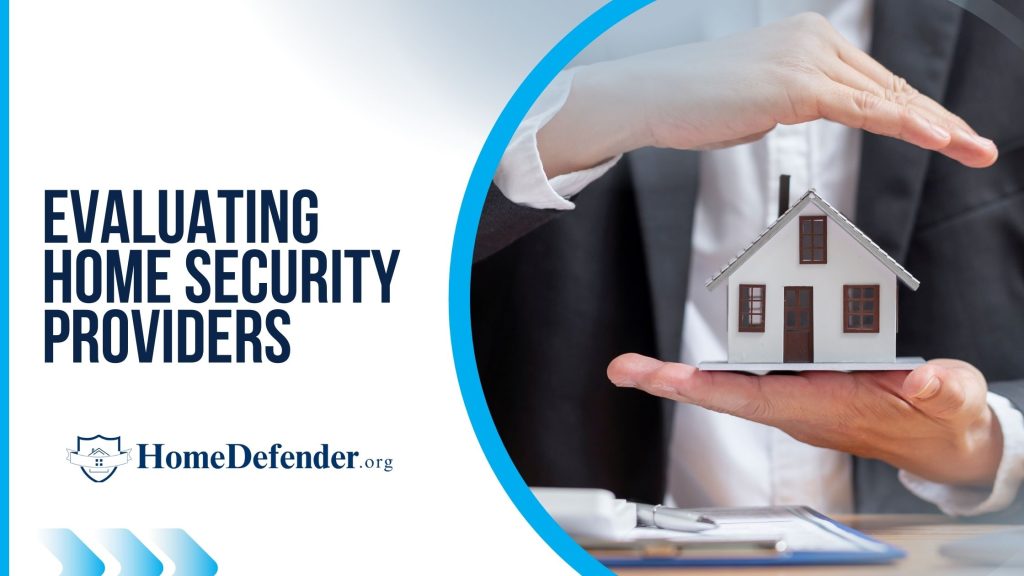
To secure your home effectively, it’s crucial to select the right home security provider. In this section, we’ll examine the factors to consider when evaluating home security providers.
These factors include company reputation, customer service, and package options.
Company Reputation and Experience
A thorough research of the reputation and experience of home security providers is crucial for choosing a provider you can rely on and trust. Some of the most reputable providers in the industry include:
SimpliSafe
ADT
Vivint
Ring
Abode
Link Interactive
Eufy
Brinks
Frontpoint
Scout
To compare customer reviews and ratings, examine online reviews, customer testimonials, and ratings from independent review sites. Additionally, search for awards or certifications the company has received to further gauge their credibility. By thoroughly researching company reputation and experience, you can confidently select a provider that meets your needs.
Customer Service and Support
When selecting a home security provider, it’s vital to consider the quality of customer service and support. The most advantageous customer service policies include:
Reasonable contract terms
Short wait times
24/7 monitoring
Prompt repairs
Mobile access
Entry
Companies such as Vivint and Frontpoint are renowned for their outstanding customer service.
When evaluating a provider’s customer service and support, consider their cancellation policies and responsiveness to customer complaints and inquiries. Good customer service can make all the difference in ensuring that your home security system is properly installed, maintained, and monitored.
Package Options and Customization
Home security systems like Ring, SimpliSafe, and Wyze Sense Hub offer a variety of package options and customization possibilities. Customization options may include the ability to add additional sensors, cameras, and other devices, as well as the ability to customize settings such as motion detection and notifications.
A comparison of package options and customization possibilities will help you find a home security system that perfectly aligns with your specific needs. Whether you’re looking for a comprehensive system with all the bells and whistles or a more basic, budget-friendly option, there’s a provider and package out there for you.
Budget Considerations
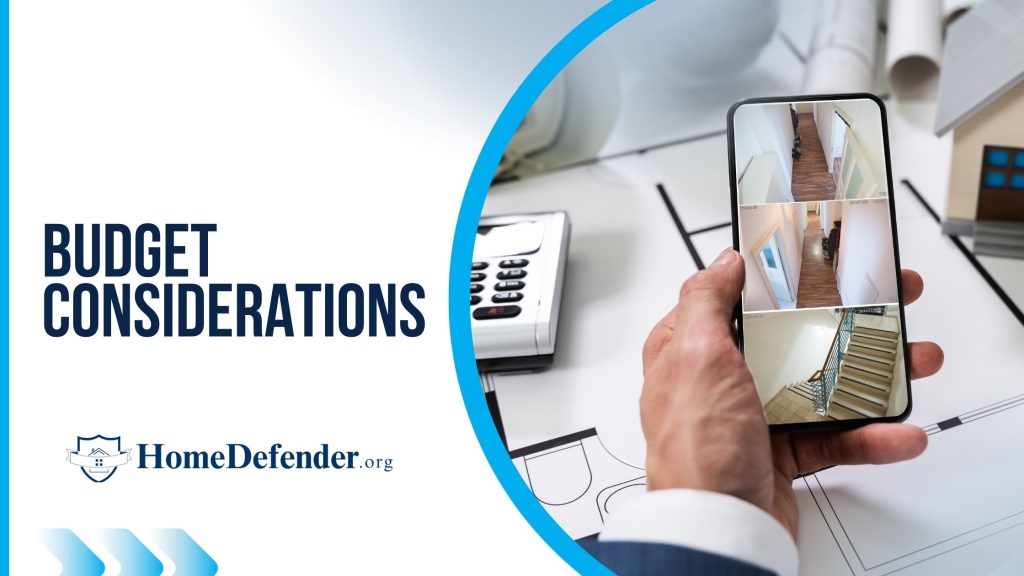
Your budget plays a crucial role in choosing a home security system. Consideration of the following factors is essential for making an informed decision:
Equipment costs
Installation fees
Monitoring services
Potential hidden fees
Balancing your budget and security priorities will ensure you select the best system for your needs without breaking the bank.
Summary
Choosing the right home security system is a critical decision that requires careful consideration of your unique needs, budget, and preferences. By evaluating your home’s layout, family members, valuables, and neighborhood crime rates, you can determine the most suitable installation option, features, and monitoring services. Remember, investing in a reliable home security system is an investment in your family’s safety and well-being. Don’t leave your home’s security to chance – select the best system for your needs and enjoy peace of mind.
Frequently Asked Questions
What is the #1 rated home security?
Vivint is rated the #1 home security system, offering state-of-the-art features and customized solutions to give homeowners the peace of mind they deserve.
What questions to ask when buying a home security system?
When choosing a home security system, consider whether you prefer a wired or wireless system, the level of security offered and associated costs, the installation and monitoring options available, the average response time to an alarm trigger, background checks conducted by the security system company, any warranties or guarantees included, if there is a contract involved, and what components are included with the system.
What is a decent home security system?
A decent home security system typically consists of easy-to-use DIY technology, optional monitoring plans, unlimited recording capacity, professional installation and monitoring services, smart home features and high-end equipment with state-of-the-art security tech. ADT Inc., SimpliSafe, Vivint, Alder Security and Cove are some of the top options available.
Are DIY home security systems as effective as professionally installed systems?
DIY home security systems can be effective, but they may not provide the same level of features and protection as professionally installed systems.
How can I determine the crime rates in my neighborhood?
To determine crime rates in your neighborhood, you can use tools such as the Crime Data Explorer on USA.gov, interactive crime maps on ADT’s website, or SpotCrime and CityProtect.


